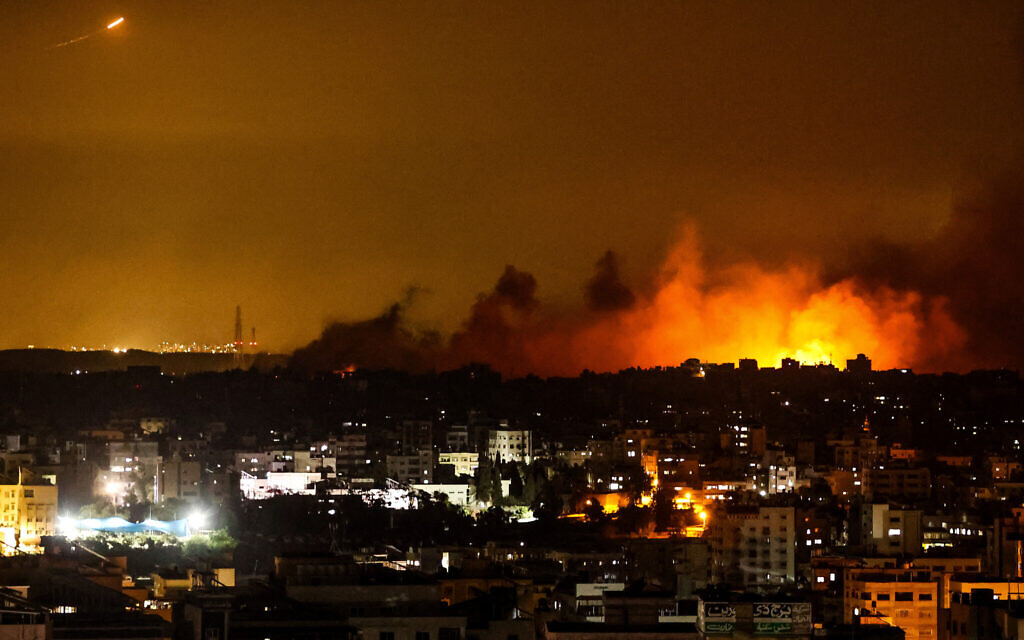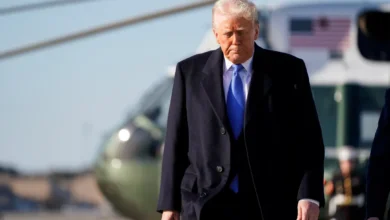Israeli Air Strike Targets Senior Hamas Official, Escalating Tensions in Gaza Strip

Israeli Air Strike Targets Senior Hamas Official, Escalating Tensions in Gaza Strip
In a significant development, the Israeli Air Force has carried out a targeted strike on a high-ranking member of Hamas, further inflaming tensions in the already volatile Gaza Strip. The strike resulted in the death of Jawad Abu Shamala, Hamas’ Minister of Economy, who was a key figure responsible for managing the organization’s funds and allegedly financing and directing terrorism both within and beyond the Gaza Strip.
The Israeli Air Force confirmed the operation on Tuesday, highlighting the role that Shamala played within the ranks of Hamas. According to Israeli military officials, his responsibilities included overseeing the allocation of funds for various activities, including financing and orchestrating acts of terrorism. This action marks another chapter in the ongoing conflict between Israel and Hamas, which has persisted for years and has often resulted in deadly consequences.
The Israeli Air Strike: A Targeted Assassination
The Israeli Air Force has justified its action by asserting that Jawad Abu Shamala played a pivotal role in sustaining and advancing Hamas’s terrorist activities. The targeted assassination of senior Hamas figures has been a longstanding strategy employed by Israel in its efforts to dismantle the leadership and infrastructure of the Palestinian organization.
According to Israeli sources, Shamala’s elimination was a carefully planned operation aimed at disrupting the financial lifeline of Hamas. By eliminating the individual responsible for managing the organization’s financial resources, Israel hopes to disrupt the flow of funds that have been channeled into various terrorist activities, both inside and outside the Gaza Strip.
The Israeli military’s statement revealed that the operation also resulted in the death of another member of Hamas’ political office. While the identity of this second casualty has not been officially confirmed, it underscores the severity of the Israeli Air Force’s attack and the extent to which Israel is willing to go to counteract the perceived threats posed by Hamas.

Hamas: A Controversial Palestinian Organization
Hamas, formally known as the Islamic Resistance Movement, is a Palestinian militant organization with a complex history and political agenda. Founded in the late 1980s, it emerged as a rival to the Palestine Liberation Organization (PLO) and has since become a significant player in Palestinian politics.
Hamas’s objectives are multi-faceted, encompassing both political and military goals. On one hand, it has sought to establish itself as a legitimate political entity, participating in elections and providing social services in the Gaza Strip, where it has a significant following. On the other hand, Hamas has been labeled a terrorist organization by Israel, the United States, the European Union, and other countries due to its use of violence and acts of terror against Israeli civilians.
The organization’s dual nature has been a point of contention in the Israeli-Palestinian conflict. While some Palestinians view Hamas as a resistance movement fighting for their rights and against Israeli occupation, others are critical of its tactics and its impact on the region’s stability.
The Broader Israeli-Palestinian Conflict
The Israeli-Palestinian conflict has been a protracted and deeply rooted dispute that has spanned decades. It is marked by complex geopolitical, historical, and religious factors, making it one of the most intractable conflicts in the world.
Central to the conflict is the question of territory, with both Israelis and Palestinians claiming historical rights to the land in the region. The establishment of the State of Israel in 1948 led to the displacement of hundreds of thousands of Palestinians, and this event continues to be a source of tension and disagreement.
Efforts to resolve the conflict have been numerous, including multiple rounds of peace negotiations, international interventions, and ceasefires. However, a comprehensive and lasting resolution remains elusive, with both sides holding deep-seated grievances and suspicions.

The Escalation of Violence
The targeted assassination of Hamas’ Minister of Economy, Jawad Abu Shamala, marks another episode in the ongoing cycle of violence between Israel and Palestinian factions, particularly in the Gaza Strip. Recent years have seen periodic outbreaks of violence, with rockets fired from Gaza into Israel and Israeli airstrikes on Gaza in response.
The situation escalated significantly in May 2021 when violent clashes erupted in East Jerusalem, leading to an 11-day conflict that resulted in hundreds of casualties and widespread destruction in Gaza. The conflict ended with a ceasefire brokered by Egypt and other international actors, but it did not address the root causes of the conflict, leaving the situation fragile and prone to further flare-ups.
International Reactions
In the wake of the Israeli Air Force’s targeted strike on Hamas’ Minister of Economy, international reactions have been mixed. The United States, a staunch ally of Israel, has reiterated its support for Israel’s right to defend itself against security threats while calling for a de-escalation of tensions in the region. Other countries and international organizations have expressed concerns about the loss of life and the potential for further escalation.
The United Nations, in particular, has consistently called for a peaceful resolution to the Israeli-Palestinian conflict, emphasizing the importance of a two-state solution based on the pre-1967 borders. The international community has also urged both sides to exercise restraint and engage in dialogue to avoid further bloodshed.
The Road Ahead: Uncertainty and Challenges
As tensions continue to simmer in the wake of the Israeli Air Force’s operation, the road ahead remains uncertain and fraught with challenges. The Israeli-Palestinian conflict is deeply entrenched, and finding a path to peace that satisfies the aspirations and grievances of both parties remains an arduous task.
Efforts to restart peace negotiations and address the core issues of the conflict, such as borders, refugees, and the status of Jerusalem, have faced numerous obstacles in the past. The recent events, including the assassination of a senior Hamas official, may further complicate any attempts at diplomacy.
In the meantime, the people of Gaza and Israel continue to bear the brunt of the conflict’s consequences, with civilian casualties and humanitarian crises becoming all too common. The international community faces the ongoing challenge of seeking ways to alleviate the suffering of those affected by the conflict while working towards a just and lasting peace.
:quality(85)/cloudfront-us-east-1.images.arcpublishing.com/infobae/U4UFSPCN757553FEDKXLWVKKGQ.jpg)
Conclusion
The Israeli Air Force’s targeted strike on Hamas’ Minister of Economy, Jawad Abu Shamala, represents another chapter in the long and complex history of the Israeli-Palestinian conflict. While Israel contends that the operation was a necessary step in disrupting Hamas’s financial activities and countering terrorism, it also underscores the deep-seated animosity and ongoing tensions in the region.
The international community, including the United Nations and various countries, continues to call for a peaceful resolution to the conflict, emphasizing the need for dialogue and diplomacy. However, the road to peace remains challenging, and the recent events serve as a stark reminder of the deep divides and unresolved issues that persist in the Israeli-Palestinian conflict. As the world watches with concern, the hope for a lasting and just solution to this decades-long dispute remains a distant but vital aspiration.




